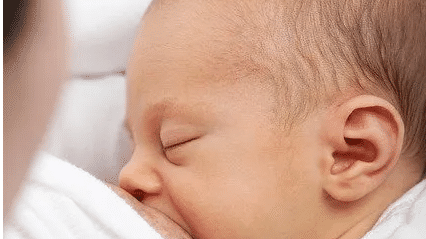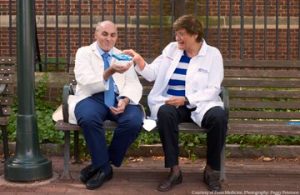Doctors and scientists across the world had time and again harped on the importance of COVID-19 vaccination for pregnant and lactating women as they are more vulnerable to the infection. Now, a study has found that a natural infection can elevate antibodies levels, which remain intact in breast milk for up to 10 months. In simple terms, the breast milk of a lactating woman can hold antibodies for up to 10 months after getting COVID-19.
This finding suggests that not only can these naturally produced antibodies protect babies but also tend to remain for a longer time in breastfeeding women than for the general population.
Also Read: Woman who survived Spanish flu, world war succumbs to COVID
The study conducted by Icahn School of Medicine at Mount Sinai Hospital in New York showed that the antibodies in breast milk — Secretory Immunoglobulin A — are different to the Immunoglobulin G (IgG) antibodies that are found in human blood and are triggered by Covid vaccination, the Guardian reported.
“Approximately 10% of infants will experience COVID-19 illness requiring advanced care. A potential mechanism to protect this population could be provided by passive immunity through the milk of a previously infected mother,” said Dr Rebecca Powell from Icahn’s Department of Medicine, Division of Infectious Diseases said.
According to the study, the secretory Immunoglobulin A (IgA) sticks to the lining of babies’ respiratory and intestinal tracts, which in turn helps to block viruses and bacteria from entering their bodies.
Also Read: YouTube fights against misinformation, blocks all anti-vaccine content
As per, Powell, the co-author of the study, the antibodies present in the milk can also be proved helpful in treating patients with severe COVID-19.
“It could be an incredible therapy, because Secretory IgA is meant to be in these mucosal areas, such as the lining of the respiratory tract, and it survives and functions very well there,” Powell was quoted as saying.
Breast milk samples from 75 women who had recovered from COVID was collected for the study. The researchers found that 88% of the samples contained IgA antibodies and in most cases, these were capable of blocking infection.
The researchers also found that these antibodies continued to be secreted for up to 10 months.
The research studies the link of COVID antibodies in the breast milk of 50 women after vaccination with either the Pfizer, Moderna, or Johnson & Johnson (J&J) jabs.
Also Read: China kills COVID infected cats, citing lack of treatment
All women, who were given the Moderna vaccine, 87% of those who received the Pfizer vaccine had coronavirus-specific IgG antibodies in their milk, while 71% and 51%, respectively, had virus-specific IgA antibodies. For the J&J vaccine, only 38% of women had IgG antibodies and 23% had IgA antibodies against coronavirus in their milk, it added.
However, the team is still investigating the impact of antibodies on breast milk after getting the AstraZeneca vaccine.







